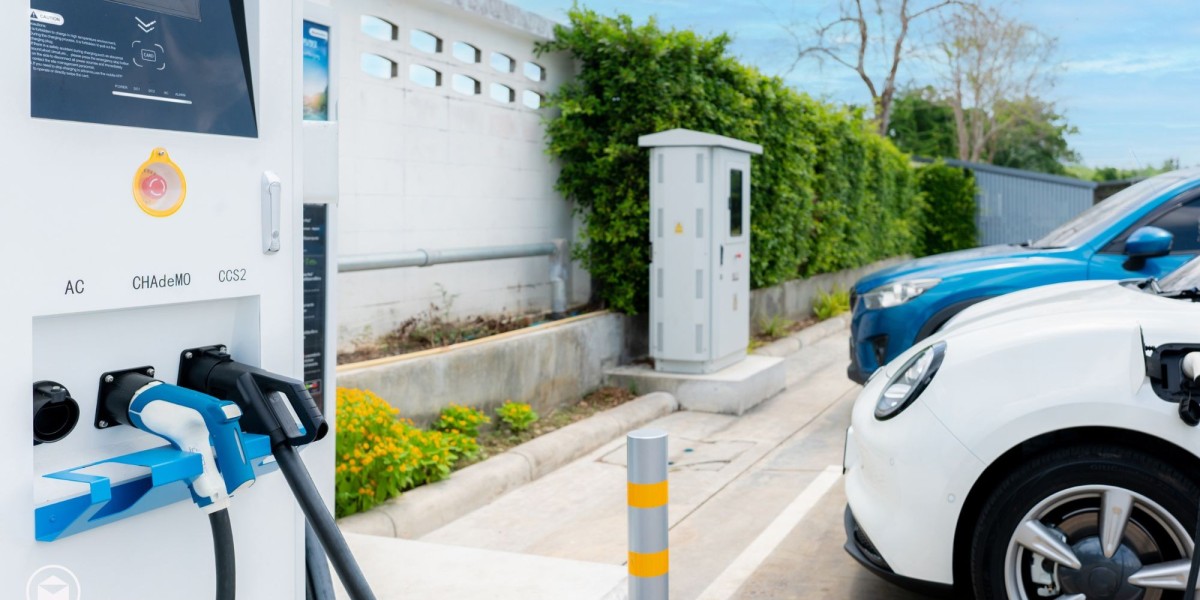Introduction
The rise of electric vehicles (EVs) marks a significant shift in the automotive industry, driven by environmental concerns, government regulations, and advances in technology. As the demand for electric vehicles increases, so does the need for efficient and accessible charging infrastructure. The Electric Vehicle Charging Station Manufacturing Plant Project Report explores the establishment of a manufacturing facility dedicated to producing EV charging stations. This report covers market trends, manufacturing processes, required equipment, financial implications, and regulatory considerations to provide a comprehensive overview for potential investors and stakeholders.
Market Overview
The global electric vehicle market is witnessing exponential growth. According to the International Energy Agency (IEA), the number of electric cars on the road surpassed 10 million in 2020 and is expected to continue growing, driven by a combination of consumer demand and government initiatives.
Market Drivers
Government Incentives: Many governments worldwide are offering incentives to promote electric vehicle adoption, including tax rebates and subsidies, which directly increase the demand for charging stations.
Environmental Awareness: Growing awareness of climate change and pollution has led consumers to seek cleaner transportation alternatives, bolstering the demand for electric vehicles and, consequently, charging infrastructure.
Technological Advancements: Innovations in battery technology and charging speed have made electric vehicles more appealing, increasing the need for robust charging solutions.
Urbanization and Infrastructure Development: Rapid urbanization necessitates improved infrastructure, including charging stations, to support the growing number of electric vehicles in cities.
Get a Free Sample Report with Table of Contents @
Manufacturing Process
Setting up an electric vehicle charging station manufacturing plant involves several key steps, from design and assembly to testing and distribution. The primary components of EV charging stations include chargers, connectors, enclosures, and power management systems.
1. Design and Engineering
- Research and Development: The first step involves designing the charging stations based on current technologies, industry standards, and consumer needs. This includes developing various models for home, commercial, and public use.
- Prototyping: Creating prototypes for testing and refinement ensures the design meets safety, usability, and performance criteria.
2. Raw Material Procurement
The manufacturing process requires sourcing high-quality raw materials, including:
- Metals: Steel and aluminum for the structural framework.
- Electrical Components: Circuit boards, transformers, wiring, and connectors.
- Plastic and Composites: For enclosures and insulation.
3. Assembly Process
- Manufacturing Line Setup: Establish an assembly line that efficiently integrates all components.
- Production Stages: Each station in the assembly line should focus on a specific task, such as:
- Assembling the electrical components.
- Fabricating the casing and enclosure.
- Integrating software for smart charging capabilities.
4. Quality Control
- Testing: Each unit should undergo rigorous testing to ensure safety and performance. This includes:
- Electrical safety testing.
- Functional testing to verify charging speeds and connectivity.
- Durability tests to ensure weather resistance and reliability.
- Compliance Checks: Ensure that the products comply with local and international safety and environmental standards.
5. Packaging and Distribution
- Final Assembly: Once quality checks are completed, the charging stations are assembled for shipping.
- Packaging: Proper packaging protects the units during transportation, ensuring they arrive safely at their destination.
- Logistics: Establish a distribution network to deliver charging stations to retailers, service providers, or directly to consumers.
Machinery and Equipment Required
Setting up a manufacturing plant for EV charging stations requires specific machinery and equipment, including:
- Metal Fabrication Equipment: Cutting, bending, and welding machines for metal components.
- Injection Molding Machines: For producing plastic enclosures and components.
- Electronic Assembly Equipment: PCB assembly machines, soldering stations, and testing devices.
- Quality Testing Equipment: Tools for electrical safety testing and performance evaluation.
- Packaging Machinery: Automated packing systems for efficient and secure packaging.
Financial Considerations
1. Capital Investment
The initial investment for establishing an EV charging station manufacturing plant can range from $1 million to $5 million, depending on the scale and level of automation.
2. Operating Costs
Operating costs will include:
- Raw Materials: Continuous procurement of metals, electronics, and other components.
- Labor: Salaries for skilled labor in engineering, assembly, and quality control.
- Utilities: Costs associated with electricity, water, and maintenance.
- Marketing and Sales: Expenses related to promoting the products and establishing distribution channels.
3. Revenue Potential
The EV charging station market is projected to grow significantly in the coming years. Increased EV adoption and the development of charging infrastructure present substantial revenue opportunities for manufacturers.
4. Profit Margins
Profit margins in the manufacturing sector can vary, but by focusing on high-quality production, innovative features, and effective marketing strategies, manufacturers can achieve competitive profitability.
Regulatory Considerations
Establishing a manufacturing plant for EV charging stations involves navigating various regulations and standards:
- Safety Standards: Compliance with safety standards set by local and international bodies, such as UL, IEC, and ANSI, is crucial.
- Environmental Regulations: Adhering to environmental regulations regarding waste management, emissions, and energy consumption is essential.
- Local Zoning Laws: Ensure that the manufacturing facility complies with local zoning laws and industrial regulations.
Environmental Impact
The manufacturing of electric vehicle charging stations should be approached with sustainability in mind. Implementing eco-friendly practices, such as recycling materials and minimizing waste, can significantly reduce the environmental footprint of the manufacturing process.
FAQ
1. What are electric vehicle charging stations used for?
Electric vehicle charging stations are used to charge the batteries of electric vehicles, providing the energy necessary for operation.
2. What are the different types of EV chargers?
There are three main types of EV chargers: Level 1 (standard household outlet), Level 2 (240V for home and public use), and DC fast chargers (for rapid charging).
3. What equipment is required to manufacture EV charging stations?
Key equipment includes metal fabrication machines, injection molding machines, electronic assembly equipment, quality testing devices, and packaging machinery.
4. What are the key regulatory requirements for manufacturing EV chargers?
Manufacturers must comply with safety standards, environmental regulations, and local zoning laws.
5. What is the potential market for EV charging stations?
The market for EV charging stations is rapidly growing due to increased electric vehicle adoption and government support, presenting substantial business opportunities.
6. What are the financial considerations for starting an EV charging station manufacturing plant?
Investors should consider capital investment, operating costs, revenue potential, and profit margins when evaluating the feasibility of establishing a manufacturing plant.
Related Reports
https://www.expertmarketresearch.com/reports/instrument-transformer-market
https://www.expertmarketresearch.com/reports/medium-voltage-motors-market
https://www.expertmarketresearch.com/reports/lubricating-oil-additives-market
Media Contact:
Company Name: Claight Corporation
Contact Person: Lewis Fernandas, Corporate Sales Specialist — U.S.A.
Email: sales@expertmarketresearch.com
Toll Free Number: +1–415–325–5166 | +44–702–402–5790
Address: 30 North Gould Street, Sheridan, WY 82801, USA
Website: www.expertmarketresearch.com
Aus Site: https://www.expertmarketresearch.com.au









